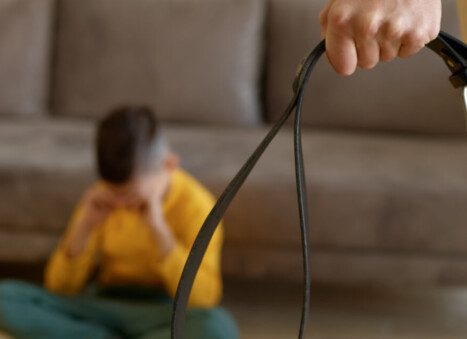
Why Montessori Is Bad? 6 Pros And Cons Of Montessori Education For Your Child
Before you can outright ask, ‘why Montessori is bad?’ or even ‘good’ for that matter, let’s get back to the basics. While looking up parenting tips or having conversations about different kindergarten options, the term ‘Montessori education’ might have popped up.
Now, don’t worry. If you are new parents, that is absolutely normal.
After all, Montessori education is something inevitable to consider when you are looking for preschools for your children. While multiple studies and research have shown a positive impact in different preschoolers who have in the past undergone Montessori education, doubts and criticisms about the same continue to pester people in the parenting community.
So, it was time we discussed the impact of Montessori education on your child – yep, the pros and cons. Stay tuned to find out more.
What Is The Montessori Philosophy?

You might ask, ‘why Montessori is bad?’ – but it’s still too soon for you to ask that. Before that, let’s talk about the Montessori philosophy.
First introduced by Maria Montessori, an Italian doctor, at the beginning of the 1900s, Montessori is an education system. It was developed 150 years ago! Maria Montessori decided to basically come up with this school that would support a child’s natural growth as well as development with a children-led approach.
Maria’s method was simple – observing children carefully and finding out how they play, learn, and act in general.
But what does this actually mean?
In this context, Maria Montessori even said
“Montessori education is about guiding children to learn independently and reach their unique potential. Children have the freedom to engage in their own learning experience, and the Montessori teacher (or parent) is there to support the child throughout this process.”
Maria’s method, thus, is all about taking an informative and educational approach that can solely focus on ‘following the kid.’
For instance, instead of figuring out what children will regularly learn, every child will decide for themselves. Every child will get to choose from a selection of activities curated for them, absolutely specific to their development and age.
This will allow them to actually learn things at their own speed and on their own, thereby cultivating independence and self-motivation.
Of course, Montessori education depends on a few fundamental principles. These principles are as follows,
- Respect for all the children.
- Natural learning.
- A curated or prepared learning environment.
- Uninterrupted timelines and work cycles.
Why Montessori Is Bad? The Pros Of Montessori Education That Will Change Your Mind!

For the longest time, it has been believed that Montessori education is good for all young children. And people never thought of asking why is Montessori bad – but times are changing, and our parenting community is evolving.
As more and more millennials are becoming parents, we can’t help but ask – is Montessori really good for children…or is it just going to hamper their growth?
Today, let’s make a ‘pros vs cons’ list – scroll down and check out the top advantages of Montessori Education for your child.
1. Independence:
The entire Montessori philosophy is all about taking a child-led approach. This means your child will learn how to be independent from a very young age.
From very early on, your child will learn how to make their own choice, how to understand the world around them, and most importantly, how to do things at their own pace.
Whether it’s learning how to get dressed, solve puzzles, or even help with cooking, every child needs to build the necessary skills to solve problems, persist, and openly communicate when they need help.
2. Self-Discipline:
You might think a Montessori education might give your child way too much independence, but the truth is that Montessori schools have more rules than an ordinary daycare or even a kindergarten.
These schools are well known for their well-defined schedules, rules, and basic self-discipline. For instance, children know that they need to keep their books in the right place so that their friends can find them when required.
Children here become self-disciplined – the school’s routine combines practice with independence and motivates children to become aware of their traits.
3. Social Skills:
The entire Montessori model is all about multi-age groups of children – these age groups mostly span over three years, such as 0 to 3 years and 3 to 6 years.
This, in turn, allows peer-to-peer learning, which happens to come with several benefits. The younger kids learn by simply observing as well as practicing independently. On the other hand, the older kids also get to practice skills like leadership and, at the same time, develop values just by helping out little ones.
4. Projects Over Worksheet:
The Montessori method encourages memorization but through a different approach. It emphasizes memorization through personal experiences. The traditional way of education has approaches that depend on worksheets and make a list of information that a child has to memorize. However, Montessori is mostly about project-based learning.
This particular way of teaching allows kids to get the information as well as allows them to discover what they are naturally good at when put into a group activity. This has a way of developing emotional and social well-being and has various other benefits that will help them build their character.
5. Age-Specific Activities:
The toys and materials that are used in Montessori are not complicated but have a way of engaging kids and giving them equal opportunities to develop emotional, cognitive, and social skills. In this method, kids are separated into various age groups and then kept in the same learning environment. They experience the same things but according to them, they gather different experiences from the same learning techniques.
Everything in a classroom is according to the age of the children, their height, and what they would like to play with and it also teaches them self-care. It might seem unorganized and less structured when compared to a traditional classroom, but the ambiance that a Montessori has is characterized by letting enough light in, to not restrict any movement, as well as ensuring cleanliness.
Why Montessori Is Bad? The Cons Of Montessori Education You Didn’t Know!

So, why Montessori is bad? There are pros, and then there are cons – just like everything else in this world. And in the case of Montessori education, there’s more than one drawback that you need to consider before choosing the same for your kids. Without wasting time, let’s find out!
1. Cost:
YES, this is precisely why Montessori is bad – you might not be able to afford it in the first place. While Maria Montessori LITERALLY came up with the idea while living in a slum, there’s no point denying that the Montessori philosophy is costly.
These schools are private organizations. The materials you use in these classrooms will cost you a certain sum of money and a living standard that does involve a higher living cost. It might not be possible for everyone to afford the same living standard.
2. Authentic Montessori Is Difficult To Find:
It might be difficult to come across a Montessori school or kindergarten that’s authentic. At the end of the day, if you end up sending your children to a school that does not follow any of the fundamental principles of the Montessori Philosophy, what’s the point, really?
That way, your children will not experience any of the benefits of the same. In fact, we have come across so many parents who tried out the fake Montessori schools – apparently, it was an utter disaster.
3. Loose Curriculum:
While multiple parents have expressed concern about the non-existence of a structured, well-defined curriculum in Montessori schools, the idea of children having way too much freedom to choose also doesn’t bode well with several parents.
These parents worry that their children will not learn much by taking such a ‘loose’ approach since not every kid can easily study without instructions. Think about it: Some students are even unable to study on their own in college.
They worry that the children won’t learn much with such an approach, as not every child can learn without instructions – some people cannot even achieve it in college.
4. Conformity Over Creativity:
The study materials are deliberately formed to be self-corrective and focus a lot on accuracy rather than creativity. These materials have a mechanism that gives feedback on its own. And it allows kids to identify their mistakes and correct them.
However, there is a disadvantage to this method. When the study materials are changed, they might not be able to solve it. There might be other creative and alternative ways to get to the result. But they fail to go through those processes. The specific techniques they use limit their imaginative mind and approach to solving a problem.
5. Transitioning To Higher Education Can Be Difficult:
Presently, no universities or secondary education schools follow the Montessori education philosophy. Thus, students who are accustomed to the independent learning procedure and open-ended structures might face difficulty in adjusting to the different principles and find it hard to make the transition. They might find it surprising that they have to follow some strict timetables and maintain deadlines that they never had to do previously.
And It’s A Wrap!
So you know why Montessori is bad, or even good for that matter. What next? A pros vs. cons list is ideal for making most decisions in life. This is true, especially when it comes to your child’s education. We millennials function a little differently than most generations. But then it’s all about breaking the toxic patterns of raising children.
We will definitely do a better job. And the first step is figuring out the education system you want to follow for your child. And even if Montessori education doesn’t float your boat, it’s fine. Just feel free to share your thoughts and experiences in the comments below – because your opinions matter!
Have A Look:
Already have an account?
Sign In
Create your account
User added successfully. Log in









